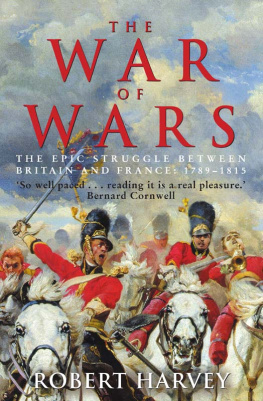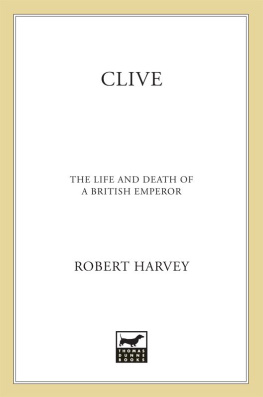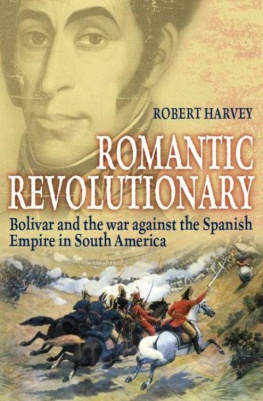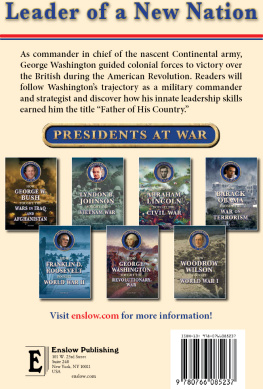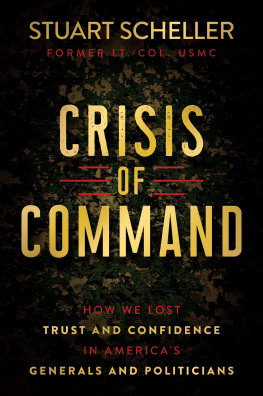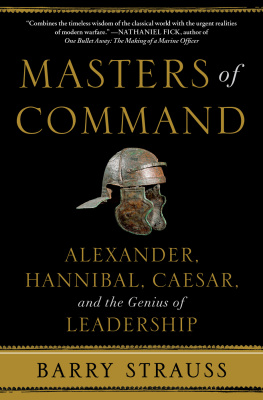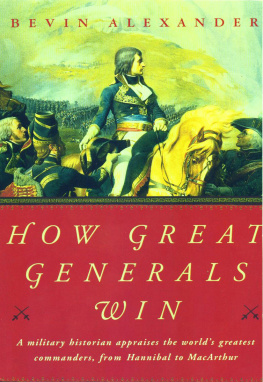Robert Harvey is a former member of the House of Commons Foreign Affairs Committee, was assistant editor of The Economist, and foreign affairs leader writer for the Daily Telegraph.
ALSO BY ROBERT HARVEY
American Shogun: MacArthur, Hirohito and the American Duel with Japan
Birth of a Democracy
Blueprint 2000 (ed.)
Clive: The Life and Death of a British Emperor
Cochrane: The Life and Exploits of a Fighting Captain
Comrades: The Rise and Fall of World Communism
A Few Bloody Noses: The American Revolutionary War
Fire Down Below
Global Disorder
Liberators: South Americas Savage Wars of Freedom
The Return of the Strong
The Undefeated
The War of Wars
The World Crisis (ed.)
MAVERICKS
THE MAVERICK GENIUS OF GREAT MILITARY LEADERS
Robert Harvey
Constable
LONDON
Constable & Robinson Ltd
3 The Lanchesters
162 Fulham Palace Road
London W6 9ER
www.constablerobinson.com
First published in the UK by Constable,
an imprint of Constable & Robinson Ltd, 2008
This paperback edition published by Constable,
an imprint of Constable and Robinson, 2009
Copyright Robert Harvey 2008
The right of Robert Harvey to be identified as the author of this work has been asserted by him in accordance with the Copyright, Designs and Patents Act 1988.
All rights reserved. This book is sold subject to the condition that it shall not, by way of trade or otherwise, be lent, re-sold, hired out or otherwise circulated in any form of binding or cover other than that in which it is published and without a similar condition including this condition being imposed on the subsequent purchaser.
A copy of the British Library Cataloguing in
Publication data is available from the British Library.
ISBN: 978-1-84529-929-3
Printed and bound in the EU
1 3 5 7 9 10 8 6 4 2
To
Patric Dickinson, this tale of modern knights
Maverick (said to be named from Samuel Maverick, a Texan rancher about 1840 who habitually neglected to brand his calves):
1. (US) In the cattle breeding districts a calf or yearling found without an owners brand.
2. A masterless person, one who is roaming and casual.
Murrays New English Dictionary, 1908
Some talk of Alexander, and some of Hercules, of Hector and Lysander, and such great names as these, of all the worlds great heroes.
The British Grenadiers marching song
If you can keep your head when all about you
Are losing theirs and blaming it on you,
If you can trust yourself when all men doubt you,
But make allowance for their doubting too;
If you can wait and not be tired by waiting,
Or being lied about, dont deal in lies,
Or being hated, dont give way to hating,
And yet dont look too good, nor talk too wise:
If you can dream and not make dreams your master;
If you can think and not make thoughts your aim,
If you can meet with Triumph and Disaster
And treat those two impostors just the same;
If you can bear to hear the truth youve spoken
Twisted by knaves to make a trap for fools,
Or watch the things you gave your life to, broken,
And stoop and build em up with worn-out tools
If, RudyardKipling
No more heroes anymore,
No more heroes anymore,
Whatever happened to the heroes?
The Stranglers
Contents
Acknowledgements
I owe an immense debt to the many senior, junior officers and servicemen and women whom I have encountered over three decades as a journalist and politician, who have illuminated me in conversation and by example on the subjects of military leadership, self-sacrifice, motivation and morale. In particular, they have shown that while training, fitness, discipline, hardship and even the ultimate sacrifice are part of the military life; camaraderie, humour, self-fulfilment, professionalism and intelligence also play a huge role.
I owe special thanks to Raleigh Trevelyan, who served with distinction in Italy, for his advice, literary and military; Major Edward Bonnor-Maurice; Colonel Max Morrison, who was in the vanguard of the D-Day landings; Colonel Peter Cannon; Squadron-leader Brab Dowling; the legendary POW escaper Jimmy James (who I met only once, but that was good enough), all of whom helped me to appreciate the qualities of the maverick commander.
I owe a great debt to Colonel Sir John Baynes, whose penetrating insights on morale, as well as his book of the same name, which remains the definitive work on the subject, greatly influenced me in writing this book, and also to Lady Baynes for allowing me to quote from his book.
Still-serving officers whose views have influenced this book would, I am sure, not wish to be named. Former Sergeant-Major Brian Dando in many conversations explained the secrets of training and discipline and the importance of the five Ps: Poor preparation produces piss-poor results.
Sublimely, over many years, I have benefited from the wisdom of several defence correspondents who were journalistic colleagues: Commander Jim Meacham of The Economist; Gordon Lee of The Economist; John Keegan of the Daily Telegraph and Robert Fox of the Daily Telegraph.
Finally, the example of my own father, who pretended to be older in order to enlist as a young lieutenant in the Second World War, was captured in fierce fighting in Italy, spent more than a year in a POW camp, and ended the war as a major in charge of the Monuments and Fine Arts section of the British military occupation, has always inspired me although like so many of his generation he would rarely be drawn into describing his military experiences. My uncle Peter, Lord Harvey of Tasburgh, also had a distinguished war record, as did my maternal uncle, Giuseppe, Marchese Curtopassi, who fought heroically with the Italian partisans against the Germans.
A select bibliography on each of the mavericks is provided at the end of the book. But I wanted to draw particular attention to the most indispensable of them. Sun Tzus The Art of War; written in the closing years of the sixth century BC , remains an astonishing fount of wisdom and good sense two-and-a-half millennia later, its general maxims on warfare still applicable today. By contrast Carl von Clausewitzs On War, while a classic, is sometimes inhumane and liable to misinterpretation (as indeed it was, disastrously). Basil Liddell Harts beautifully written Strategy raps Clausewitz over the knuckles, and his Great Captains Unveiled provides vigorous pen portraits of great generals. John Baynes Morale remains, as I said, the classic work on this all-important subject. John Keegans The Mask of Command is a major exploration of generalship. General Archibald Wavells lectures provide the most succinct overview from the horses mouth, although Montgomerys memoirs also have fine passages on the subject.
I have been stimulated by these and the many other books in the bibliography, for which I am immensely grateful, although the writing, judgements and mistakes are my responsibility entirely.
Finally, I owe enormous thanks to my immensely skilful editors, Leo Hollis and Hannah Boursnell, to the always penetrating and wise counsel of Gillon Aitken, to my indefatigable and accurate assistant, Jenny Thomas and to her historian husband Geoffrey, both of whom have also been extraordinarily courageous, to my mother, and to Jane and Oliver for their love and support.
List of Illustrations and Maps
Illustrations
Portrait of Robert Clive. Oil on canvas, by Nathaniel Dance,
Next page

